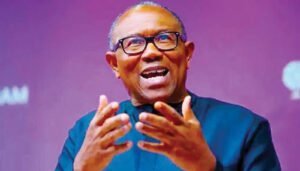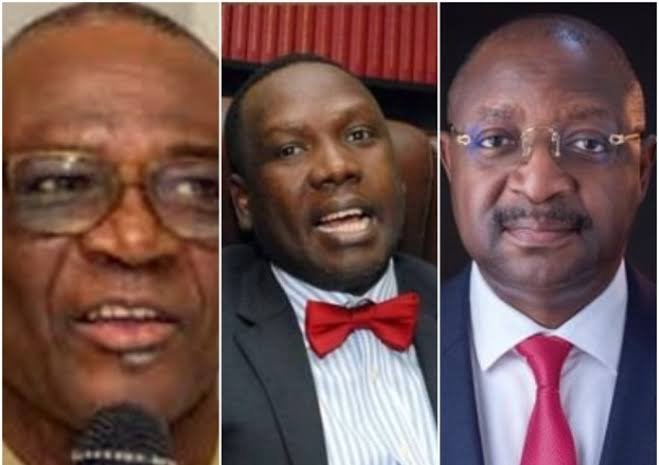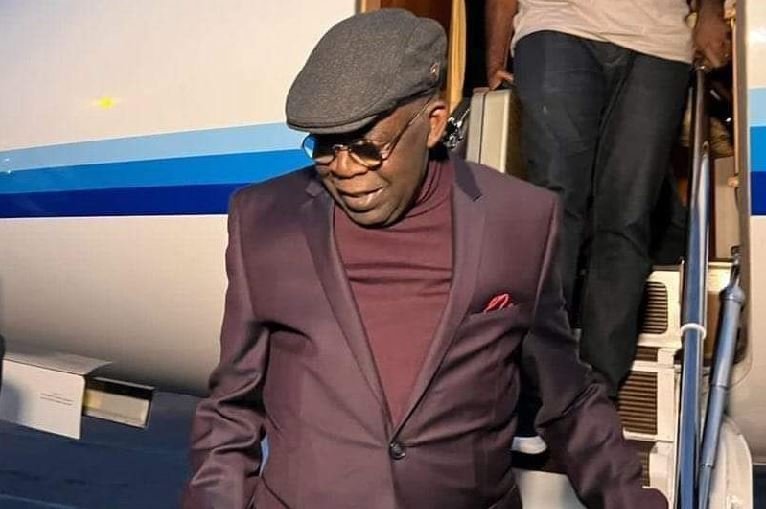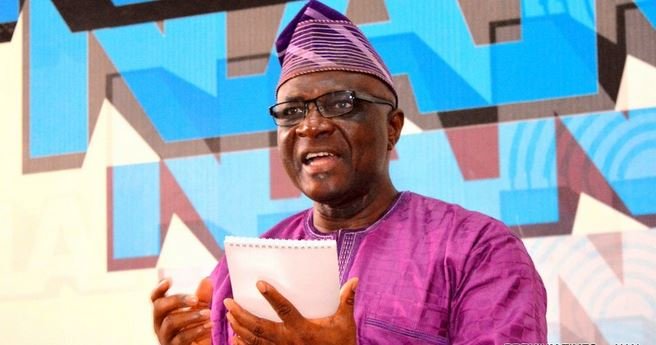The ongoing spectacle surrounding President Bola Tinubu’s media team has become a constant episodes of drama, leaving a delightful sour taste in the mouth.
On November 14, Daniel Bwala stepped into the spotlight as the new Special Adviser on Media and Public Communication. Nigerians everywhere began to scratch their heads, wondering who would be president Tinubu’s official spokesperson. After all, the seat had been gathering cobwebs since Ajuri Ngelale vacated it in September.
One can only imagine the intense brainstorming sessions that led to this appointment—probably a heated debate over who could fill the role with the utmost flair.
For days, confusion reigned. Daniel Bwala, who appeared ready to seize his moment, assumed the post. He wasn’t just walking into the presidential villa; he was strutting.
Just as the dust was settling on his designation, Bwala decided to crown himself the new presidential spokesman—a role no one had asked him to assume and certainly not one the presidency was prepared to defend.
“I’m the guy now,” his body language practically screamed as he addressed State House correspondents, reportedly occupying the press briefing room like he’d just signed a permanent lease. But, alas, his rule would be short-lived. What followed was an almost cinematic back-and-forth that culminated in a public dressing-down by Bayo Onanuga, the special adviser to the president on information and strategy and one of president Tinubu’s most trusted allies.
If there’s one thing we’ve learned about the Tinubu administration, it’s that nobody gets to sit too comfortably—not even on a press chair. Bwala’s enthusiastic debut was met with icy skepticism from those within the corridors of power.
According to a report published by a popular media outfit, it was revealed that Bwala’s troubles started when he began to exert himself. In the present Tinubu’s bureaucracy, this is considered the gravest of sins. How dare he waltz into the press briefing room, a sacred space where Ajuri Ngelale had once pontificated, and declare himself spokesman. Worse still, he even tweeted about it. The gall. The audacity. The absolute nerve.
Meanwhile, in Brazil, it was also revealed that President Bola Tinubu became unsettled and angry. His aides must have been unsure whether to first calm him down or block Daniel Bwala on X (formerly Twitter). Word has it that Tinubu immediately summoned Bayo Onanuga, his Special Adviser on Information and Strategy, to clean up the mess. And clean up he did.
According to Onanuga’s decree, Bwala’s title had been demoted and rebranded, to Special Adviser on Policy Communication. This fancy new title ensured one thing: Bwala would now be operating far, far away from the presidential villa. His fate has been sealed, banishing him from the villa’s inner circle to the periphery of power.
At the heart of this saga lies a deeper issue, Tinubu’s media team is the largest in Nigeria’s history. Instead of fostering collaboration, it’s created a battlefield where every adviser, strategist, and consultant is vying for a sliver of relevance.
Dele Alake, once poised to be Tinubu’s media adviser, was sidelined in favor of others. Ajuri was brought in, then pushed out. Now Bwala has joined the ranks of those who came, saw, and were swiftly demoted. Meanwhile, Onanuga has been quietly running the show, proving that in this Game of Thrones, only the slyest survive.
What does this circus say about the Tinubu administration? For starters, it reveals a stunning inability to manage internal affairs. If the presidency can’t decide who gets to sit in a press office, how can Nigerians trust it to address actual issues like inflation, insecurity, or bad economy and power outages.?
Secondly, it highlights the absurdity of our political culture, where titles are handed out like party favors and revoked just as quickly. This is concerning given Bwala’s brief stint as presidential spokesman. This will definitely go down as yet another footnote in Nigeria’s rich history of political absurdity. While other nations are busy tackling climate change and economic crises, we’re over here debating office seating arrangements and title semantics.
Let’s be clear. The president Tinubu’s media team is an unstructured mess. With three Special Advisers seemingly tripping over one another in their overlapping roles, the entire media and communication function reeks of dysfunction. Is there a coherent strategy? Or is it simply a game of musical chairs where whoever shouts the loudest wins?
Bwala’s sudden bid for prominence and subsequent demotion reveal a profound ignorance of how a properly structured media office should function. Managing communications for a presidency is already an uphill battle—balancing narratives, managing crises, and projecting authority in a polarized political environment is no easy feat. But this drama? It’s a recipe for chaos.
Perhaps the most telling aspect of this entire saga is the reaction from President Tinubu himself. Furious at Bwala’s audacity, the president reportedly instructed Onanuga to issue a public clarification, effectively yanking the rug from under Bwala’s feet. But one has to wonder: who in the world is responsible for making these appointments in the first place?
If the politics in the Tinubu’s media team wasn’t tragic enough, the choice of characters involved adds another layer of comedy to the chaos.
Daniel Bwala, for instance, comes with a history that raises more questions than answers about his suitability for any position of trust. His appointment is a glaring reminder of why real progress feels perpetually out of reach. It’s not just about political appointments; it’s about what those appointments say about our collective values and the kind of individuals trusted to steer the nation’s future.
If people like Bwala are the standard-bearers for youth representation in government, then it’s not just Bwala’s integrity that’s in question—it’s the entire trajectory of our national conscience. That someone with a record as checkered could even be considered for a senior role in the presidency is a damning indictment of the quality—or lack thereof—of personnel management at the highest level.
The media function, arguably one of the most visible arms of the presidency, requires individuals of unimpeachable character, strategic vision, and professional competence. Instead, what we see is a revolving door of political appointees whose primary qualifications seem to be loyalty to whoever holds the reins of power on any given day. This isn’t governance; it’s a soap opera.
The Tinubu presidency needs to get its house in order urgently. Governance is hard enough as many Nigerians continue to grapple with unprecedented economic hardships and social challenges. The last thing Nigerians need is a presidency bogged down by internal squabbles and administrative incompetence.










